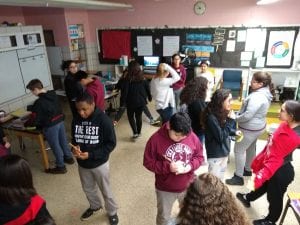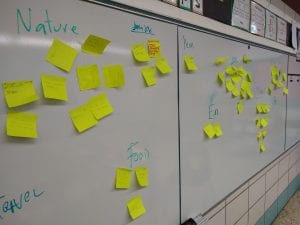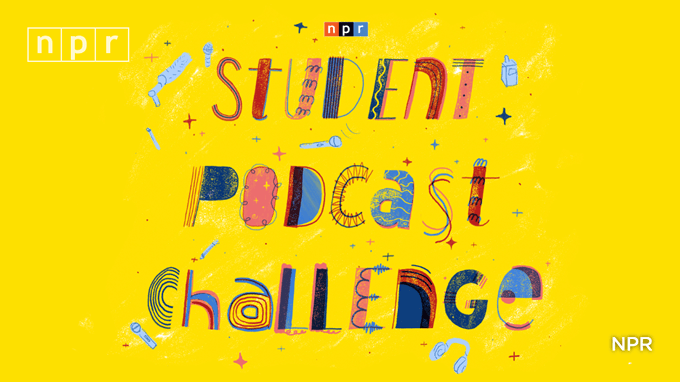
Podcasting: Content & Themes
As part of middle school electives I am currently running a course on podcasting. Beyond the technical proficiency required, the most important part of podcasting would be content. Generating topic, ideas, and themes is essential. We spent the last few periods running through the gamut of brainstorming activities to think of what is important to not just the audience, but to ourselves.
Content is King
When it comes to podcasting, there aren’t any stunning visuals, action shots, or flashy images to keep your audience entertained; all you have is your content. Not only does your topic have to be interesting (not just new or novel) but it also needs to be relatable. In an effort to determine what audiences can relate to , and what is important to us as content creators, we spent some times this past week brainstorming. In the 5 week course, I see this as the pivotal point. This is the time when I need to hook students and their projects start to build momentum. I likened it to having a boulder at the top of a hill, it sits precariously, teetering, but once it starts rolling it becomes almost impossible to stop. We have a finite amount of time and once student start to develop content, it can be altered and adjusted, but not stopped. Therefore it’s vital that they pick the right topic or theme; something that is engaging but also something on which they have a lot to speak about.
Brain Storming
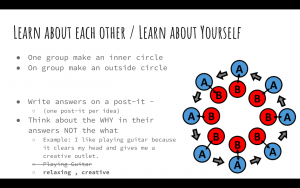 We made two concentric circles and have students rotating and talking about themselves. Each student had some post-its and was responsible for recording details about the other person’s response. I wanted students to focus on the theme of the responses, moving beyond the basic answers. If a student wanted to goto Hawaii for their dream vacation, I pressured students to ask “why?” Trying to elicit a better response. The was beneficial not just for this activity, but excellent practice for interview that would come later in the course. This activity worked very well as both an emotional connect but also as a hook. Student didn’t necessarily make the connection to podcast, but that ok at this point in the lesson.
We made two concentric circles and have students rotating and talking about themselves. Each student had some post-its and was responsible for recording details about the other person’s response. I wanted students to focus on the theme of the responses, moving beyond the basic answers. If a student wanted to goto Hawaii for their dream vacation, I pressured students to ask “why?” Trying to elicit a better response. The was beneficial not just for this activity, but excellent practice for interview that would come later in the course. This activity worked very well as both an emotional connect but also as a hook. Student didn’t necessarily make the connection to podcast, but that ok at this point in the lesson.
Common Themes
The next step was compiling the post-its on the wall looking for similarities. What were the common themes between all these seemingly unrelated items? For example if a student said they wanted to go to Hawaii because it was relaxing, another said that their hobby was reading books because it helped them calm down and relax. We’d group those together under the common theme of calming/relaxation. I was surprised how quickly they picked up on what I thought would be a complicated concept. Some of the common themes that emerged were: Food, Sports/Being Active, Music, Traveling, Animals, and Sleeping (eye roll).
Taking a step back we thought about how these themes emerged organically and if they were important to us then they would probably be important to our audiences as well. It also was a great representation of what a podcast can be (should be). They’re more than a topic, they’re about a theme. If you wanted to do nature, there were many topics that fit into that theme – Hawaii, Grand Canyon, the mountains, etc. When we choose our topics you need to keep in mind themes as well – the message or the meaning beyond your topic.
Elements of a Podcast
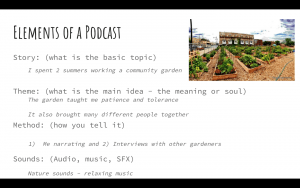 Our next step is examining how these ideas relate to the elements of a podcast. I broke it down into four main things to think about. The Story, or the basic topic, the Theme, the message, the Method, or how they will tell their story, and the Sounds they will need to make it come alive. In my example to the right I talk about the community garden I’ve volunteered with for the past two summers. That, yes, the podcast was about my garden but it’s more about how it taught the idea of patience and tolerance. How it wasn’t just the slow growing plants or pests, but also working with all the different people that came to the garden.
Our next step is examining how these ideas relate to the elements of a podcast. I broke it down into four main things to think about. The Story, or the basic topic, the Theme, the message, the Method, or how they will tell their story, and the Sounds they will need to make it come alive. In my example to the right I talk about the community garden I’ve volunteered with for the past two summers. That, yes, the podcast was about my garden but it’s more about how it taught the idea of patience and tolerance. How it wasn’t just the slow growing plants or pests, but also working with all the different people that came to the garden.
I’m trying to give them enough structure and freedom for them to choose a topic for their podcast that they are passionate about. I feel that’s the only way to keep them motivated and productive for such an extended period of time. NPR is currently running their Student Podcast Challenge and I’m hoping to motivate my students enough to enter. I love the real life connection and how their product is applicable to the real world. Even if they’re not select the skills that a project like this develops is innumerable. I’m excited to see the wild topics they choose and listen to their finished products.
Additional Resources:
Edublogger’s Guide to Podcasting
Atlantic: Inside the Podcast Brain
